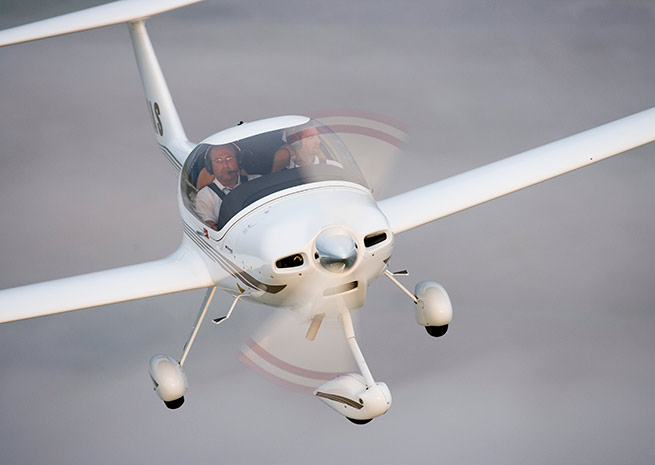
AOPA is calling on its members to take immediate action to build support for new legislation that would reform the third class medical process and provide other protections for general aviation pilots.
On March 2, the association sent a “call to action” urging thousands of members to contact their senators and members of Congress and ask them to support the Pilot’s Bill of Rights 2 by co-sponsoring the legislation. Within the first few hours of receiving the call-to-action e-mail, more than 16,500 AOPA members had responded.
“AOPA’s members care deeply about general aviation and they’re willing to stand up and fight for what matters to them—and that matters to lawmakers,” said AOPA President Mark Baker. “We know our members are anxious to see third class medical reform enacted and they have an important role to play in making it happen. So if you’ve received a call-to-action e-mail from us, I urge you to contact your elected officials and ask them to co-sponsor Pilot’s Bill of Rights 2.”
Already 22 bipartisan members of the House and Senate have signed on as co-sponsors of the legislation, which was introduced in both chambers late Feb. 25. (See if your elected officials are co-sponsors.)
AOPA has expressed its support for the legislation, immediately sending letters thanking the bills’ sponsors for their leadership and emphasizing the importance of reform to the future of GA. The letters to the House and Senate sponsors also were signed by the leaders of the Experimental Aircraft Association, Flying Physicians Association, General Aviation Manufacturers Association, Helicopter Association International, National Agricultural Aviation Association, National Air Transportation Association, and National Business Aviation Association.
Pilot’s Bill of Rights 2 would allow thousands of pilots to fly recreationally without requiring a third class medical certificate. The legislation would allow pilots to fly under IFR or VFR in aircraft weighing up to 6,000 pounds. Pilots also would be allowed to carry up to five passengers, fly at altitudes below 14,000 feet msl, and fly no faster than 250 knots.
 To ensure that aviators benefit from the provisions in Pilot’s Bill of Rights 2, the legislation would allow pilots to fly under the new rules even if the FAA fails to comply with the bill’s requirements 180 days after enactment.
To ensure that aviators benefit from the provisions in Pilot’s Bill of Rights 2, the legislation would allow pilots to fly under the new rules even if the FAA fails to comply with the bill’s requirements 180 days after enactment.
The legislation also offers new protection from liability for GA pilots on charitable flights and for representatives of the FAA working on behalf of the agency, such as aviation medical examiners. To protect pilot certificates, Pilot’s Bill of Rights 2 would prevent the FAA from requiring a re-examination of a covered certificate holder without clear evidence of wrongdoing or unsafe behavior.
To improve the notam system, the legislation would establish a rating system to prioritize and store notams. Pilots would be protected from enforcement action if a notam is not included in the repository.
To aid pilots who do face enforcement actions, Pilot’s Bill of Rights 2 would ensure that data collected by contract towers and other outsourced FAA programs is subject to the same Freedom of Information Act requirements as data from the FAA itself. The exception would be aviation safety action reports, which are designed to prevent accidents by encouraging voluntary reporting of safety concerns by employees of FAA contractors.
AOPA members who did not receive a call to action can still do their part to win added support for the legislation by using the online form to contact their elected officials and ask them to co-sponsor Pilot’s Bill of Rights 2.



